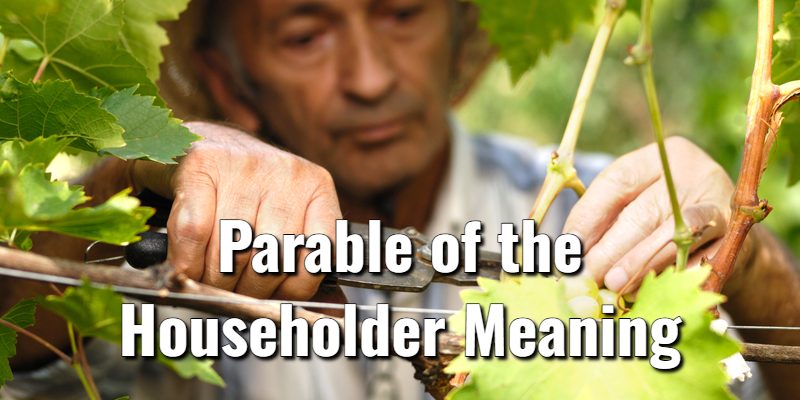This parable uses the analogy of a vineyard and its tenants to convey a message about the rejection of God’s messengers and the consequences. In the parable, a householder (vineyard owner) plants a vineyard, sets up a hedge around it, digs a winepress, and builds a tower. He then leases the vineyard to some tenants and goes away. When the time for the harvest arrived, the householder sent his servants to collect the fruits. However, the tenants mistreat and kill the servants sent by the owner. The householder sends more servants, but they are treated in the same way. Finally, the householder decides to send his son, thinking that the tenants will respect him. However, when the tenants see the son, they plot to kill him, thinking they will inherit the vineyard. The meaning of the Parable of the Householder is evident from the parable itself. It serves as an allegory of God’s relationship with Israel. The householder represents God, the vineyard symbolizes Israel, the tenants represent the religious leaders and the people of Israel, and the servants and the son symbolize the prophets and ultimately Jesus himself.
Parable of the Householder Meaning
The Parable of the Householder meaning can be found in Matthew 13:51-53:
Matthew 13:51-53
“Jesus saith unto them, Have ye understood all these things? They say unto him, Yea, Lord. Then said he unto them, Therefore every scribe which is instructed unto the kingdom of heaven is like unto a man that is an householder, which bringeth forth out of his treasure things new and old. And it came to pass, that when Jesus had finished these parables, he departed thence.”
Lord's Library participates in affiliate programs. We may make a small commission from products purchased through this resource.
- What Does the Bible Say About Achievements? With Key Scriptures - April 11, 2025
- What does the Bible Say About Abortion? With Key Scriptures - April 11, 2025
- Prosperity Gospel Meaning in the Scriptures: Is it Biblical? - April 7, 2025













